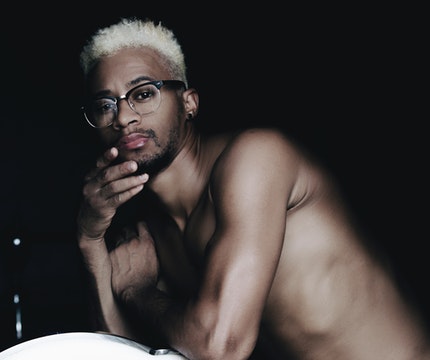Intercourse on Campus
Identity-
100 % Free
Identification
Politics
A report from
the agender,
aromantic, asexual
top range.
Photographs by
Elliott Brown, Jr.
NYU class of 2016
“Presently, we point out that i will be agender.
I am the removal of my self from the social construct of gender,” says Mars Marson, a 21-year-old NYU movie major with a thatch of brief black colored tresses.
Marson is speaking with me amid a roomful of Queer Union pupils during the class’s LGBTQ student heart, in which a front-desk container offers free keys that let visitors proclaim their own favored pronoun. In the seven students collected from the Queer Union, five prefer the single
they,
meant to denote the kind of post-gender self-identification Marson defines.
Marson came to be a girl biologically and arrived on the scene as a lesbian in high-school. But NYU was the truth â a place to explore transgenderism immediately after which deny it. “Really don’t feel linked to the term
transgender
as it feels more resonant with digital trans men and women,” Marson says, making reference to individuals who desire to tread a linear course from feminine to male, or vice versa. You can say that Marson and other college students within Queer Union determine instead with being someplace in the midst of the trail, but that’s not quite proper either. “In my opinion âin the center’ however sets female and male while the be-all-end-all,” claims Thomas Rabuano, 19, a sophomore crisis major who wears makeup, a turbanlike headband, and a flowy blouse and top and alludes to Lady Gaga together with gay character Kurt on
Glee
as huge adolescent part versions. “i enjoy consider it outdoors.” Everybody in the group
mm-hmmm
s acceptance and snaps their fingers in agreement. Amina Sayeed, 19, a sophomore from Diverses Moines, believes. “standard women’s clothing are female and colourful and emphasized the fact I experienced breasts. I disliked that,” Sayeed says. “Now I point out that i am an agender demi-girl with link with the female digital sex.”
Regarding far edge of campus identification politics
â the spots once occupied by lgbt students and later by transgender people â at this point you find pouches of pupils such as these, young people for who tries to categorize identification experience anachronistic, oppressive, or maybe just sorely unimportant. For older years of homosexual and queer communities, the fight (and pleasure) of identification exploration on campus will look significantly common. But the variations now tend to be striking. The current project isn’t only about questioning your very own identification; it is more about questioning ab muscles nature of identity. May very well not end up being a boy, but you may possibly not be a girl, either, as well as how comfy will you be together with the idea of becoming neither? You might want to sleep with guys, or ladies, or transmen, or transwomen, while must become mentally involved in all of them, as well â but perhaps not in identical mix, since why must the passionate and intimate orientations always have to be the same thing? Or precisely why think of orientation at all? The appetites may be panromantic but asexual; you could determine as a cisgender (perhaps not transgender) aromantic. The linguistic options are nearly limitless: plenty of language meant to articulate the character of imprecision in identification. And it is a worldview that’s considerably about terms and emotions: For a movement of young people driving the borders of desire, it may feel remarkably unlibidinous.
A Glossary
The Specialized Linguistics associated with the Campus Queer Movement
A few things about sex have not altered, and never will. But also for many of those exactly who went to college many years ago â and/or a few in years past â a number of the latest intimate terminology can be not familiar. Here, a cheat sheet.
Agender:
somebody who determines as neither male nor female
Asexual:
an individual who doesn’t experience sexual desire, but whom may go through enchanting longing

Aromantic:
a person who does not discover romantic longing, but does knowledge libido
Cisgender:
perhaps not transgender; hawaii wherein the gender you identify with suits usually the one you had been assigned at birth
Demisexual:
individuals with limited libido, generally felt just in the context of deep emotional hookup
Gender:
a 20th-century constraint
Genderqueer:
individuals with an identification away from old-fashioned gender binaries

Graysexual:
an even more broad term for a person with limited sexual interest
Intersectionality:
the belief that sex, competition, course, and intimate positioning shouldn’t be interrogated by themselves in one another
Panromantic:
somebody who is actually romantically contemplating any person of any sex or direction; this does not always connote accompanying intimate interest
Pansexual:
someone who is actually sexually enthusiastic about anyone of any gender or orientation
Reporting by
Allison P. Davis
and
Jessica Roy
Robyn Ochs, a former Harvard officer who was in the school for 26 years (and who began the school’s class for LGBTQ professors and employees), sees one major good reason why these linguistically complex identities have actually abruptly become popular: “I ask youthful queer people the way they discovered labels they describe on their own with,” claims Ochs, “and Tumblr is the #1 response.” The social-media platform has actually spawned a million microcommunities worldwide, including Queer Muslims, Queers With Disabilities, and Trans Jewry. Jack Halberstam, a 53-year-old self-identified “trans butch” professor of sex scientific studies at USC, particularly cites Judith Butler’s 1990 guide,
Gender Difficulty,
the gender-theory bible for university queers. Quotes from it, such as the a lot reblogged “there’s absolutely no gender identification behind the expressions of gender; that identification is actually performatively constituted of the really âexpressions’ which can be considered the outcomes,” are becoming Tumblr bait â perhaps the earth’s minimum most likely viral content material.
But many in the queer NYU students we spoke to did not be certainly acquainted with the language they today used to explain on their own until they attained school. Campuses are staffed by managers which came old in the first wave of governmental correctness and also at the peak of semiotics-deconstruction mania. In college today, intersectionality (the concept that competition, course, and gender identity all are linked) is central with their way of understanding almost everything. But rejecting categories entirely is seductive, transgressive, a useful way to win a disagreement or feel distinctive.
Or possibly which is too cynical. Despite exactly how severe this lexical contortion may appear to a few, the scholars’ desires to determine themselves beyond sex decided an outgrowth of serious distress and strong marks from being elevated in the to-them-unbearable role of “boy” or “girl.” Creating an identity that’s described by what you
aren’t
does not appear specially effortless. We ask the students if their brand new social license to understand themselves beyond sexuality and gender, when the pure plethora of self-identifying possibilities obtained â like myspace’s much-hyped 58 gender choices, everything from “trans individual” to “genderqueer” to the vaguely French-sounding “neutrois” (which, relating to neutrois.com, should not be described, considering that the really point to be neutrois is the fact that your gender is individual to you personally) â often renders all of them experience like they’re boating in area.
“personally i think like i am in a candy store and there’s all these different choices,” claims Darya Goharian, 22, a senior from an Iranian family members in a wealthy D.C. suburb which recognizes as trans nonbinary. But even the word
solutions
is generally too close-minded for a few inside group. “we simply take problem with that phrase,” claims Marson. “it can make it feel like you are choosing to be something, if it is not a variety but an inherent element of you as individuals.”
Amina Sayeed determines as an aromantic, agender demi-girl with connection to the female digital sex.
Pic:
Elliott Brown, Jr., NYU class of 2016
Levi Back, 20, is actually a premed who was nearly kicked regarding community twelfth grade in Oklahoma after developing as a lesbian. The good news is, “we determine as panromantic, asexual, agender â and when you want to shorten it all, we are able to merely get as queer,” Back claims. “I really don’t enjoy intimate appeal to anybody, but I’m in a relationship with another asexual person. We do not have intercourse, but we cuddle all the time, hug, find out, hold arms. All you’d see in a PG rom-com.” Back had previously outdated and slept with a female, but, “as time went on, I was less thinking about it, and it also turned into a lot more like a chore. After all, it felt great, but it decided not to feel I was creating a good connection through that.”
Today, with Back’s current girlfriend, “lots of the thing that makes this commitment is actually all of our psychological hookup. And exactly how open we are with each other.”
Right back has started an asexual group at NYU; ranging from ten and 15 people usually show up to meetings. Sayeed â the agender demi-girl â is one of them, too, but recognizes as aromantic as opposed to asexual. “I had got gender by the time I became 16 or 17. Girls before guys, but both,” Sayeed claims. Sayeed continues to have sex occasionally. “But I do not encounter any kind of intimate attraction. I had never ever recognized the technical word for it or any. I am nevertheless in a position to feel really love: I favor my friends, and I also like my children.” But of dropping
in
really love, Sayeed claims, without having any wistfulness or doubt that might change later in daily life, “i suppose i simply don’t understand why I previously would at this time.”
Plenty regarding the personal politics of history was about insisting about straight to sleep with any person; today, the sexual interest looks this type of the minimum element of present politics, which include the right to say you may have virtually no desire to sleep with anyone at all. Which could seem to run counter to the more mainstream hookup tradition. But alternatively, maybe this is basically the subsequent rational step. If starting up has thoroughly decoupled intercourse from love and feelings, this activity is actually clarifying that you might have romance without sex.
Even though the getting rejected of gender just isn’t by choice, always. Max Taylor, a 22-year-old transman junior at NYU which in addition identifies as polyamorous, states that it is already been more challenging for him as of yet since the guy began using human hormones. “i cannot visit a bar and pick-up a straight lady and get a one-night stand quickly any longer. It can become this thing where if I want to have a one-night stand i need to clarify i am trans. My personal share of people to flirt with is my area, in which the majority of people understand both,” claims Taylor. “mainly trans or genderqueer people of tone in Brooklyn. It feels like I’m never going to meet somebody at a grocery shop once again.”
The complicated language, as well, can function as a coating of protection. “You could get very comfortable at the LGBT middle to get always individuals inquiring your pronouns and everyone knowing you are queer,” states Xena Becker, 20, a sophomore from Evanston, Illinois, which recognizes as a bisexual queer ciswoman. “But it’s still actually lonely, tough, and complicated a lot of the time. Simply because there are many more words doesn’t mean the thoughts are simpler.”
Additional revealing by Alexa Tsoulis-Reay.
*This article appears for the October 19, 2015 problem of
New York
Mag.
Click here visit website: onlinedatingpicks.com/interracial-dating.html
